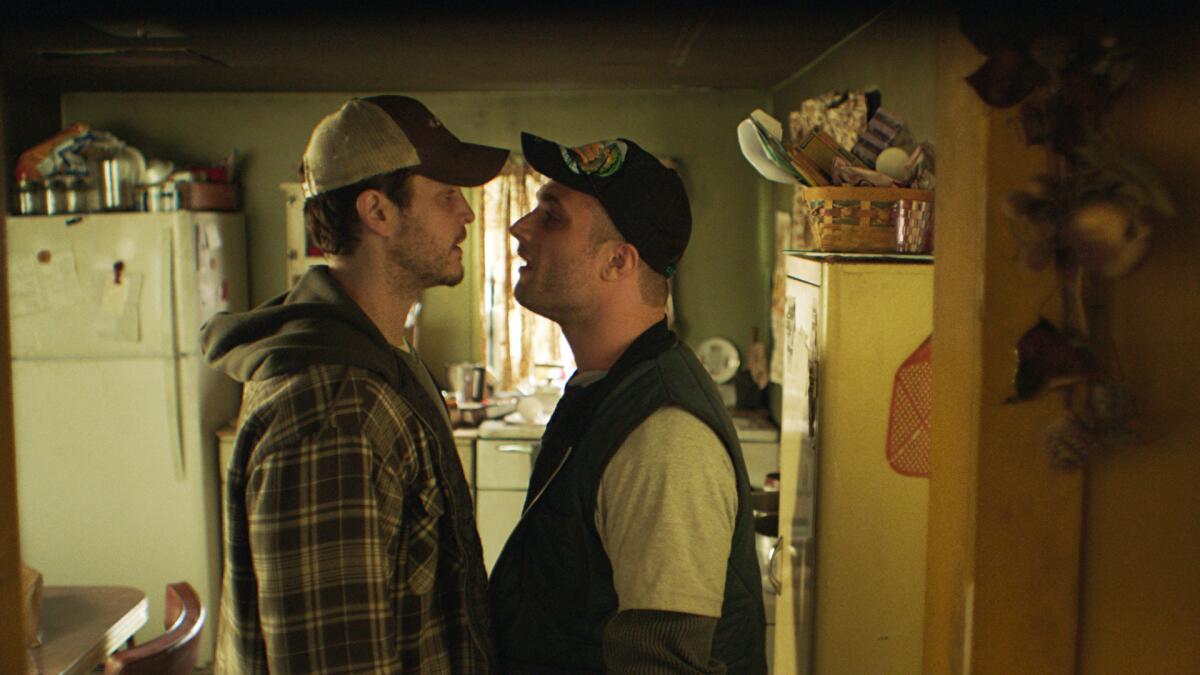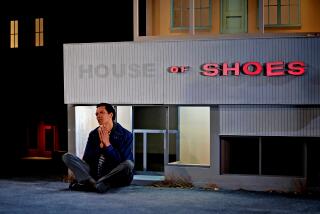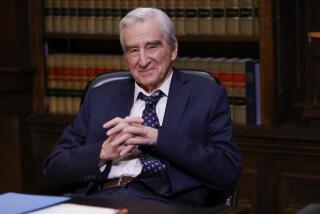Review: âThe Evening Hourâ provides a fitting stage for Philip Ettingerâs virtuosity

The Times is committed to reviewing theatrical film releases during the COVID-19 pandemic. Because moviegoing carries risks during this time, we remind readers to follow health and safety guidelines as outlined by the Centers for Disease Control and Prevention and local health officials.
Appalachian woes as a consequence of the opioid crisis have become a tired trope in stories about the region, but in âThe Evening Hour,â filmmaker Braden Kingâs story of a compassionate man doing bad things for good reasons, nuance is the target. Directing a script adapted by Elizabeth Palmore from Carter Sickelsâ novel, Kingâs touching, if muddled, drama succeeds at dignifying a subset of this countryâs working class.
Heartland hero Cole (Philip Ettinger) is everything to everyone. For his family heâs the provider, for addicts their dealer, a reliable worker at a nursing home, and for a few close loved ones their last chance at redemption. Skipping from one home to the next, buying prescription meds from the elderly to resell or visiting grandmaâs home, his interactions paint frames of a community surviving on desperate measures.
Spirituality runs deep here, in recited bible verses and cinematographer Declan Quinnâs sun-drenched vistas of the mountainous terrain. The small-town quaintness acts as a contrasting backdrop to a drug-related dispute between a local kingpin and Coleâs once-best friend Terry (Cosmo Jarvis), back in town stirring up trouble that soon smears others.
Kingâs use of preexisting music always sounds adroitly positioned to heightened poignancy sans ham-fisted sentimentality. Although the film ultimately loses its course in the numerous peripheral conflicts and unnecessary flashbacks, there are heartening glimpses of emotional frankness in Coleâs effort to forgive his oft-absent mother (a convincingly remorseful Lili Taylor) and in his fraternal disenchantment with Terry.
A fireside conversation between the former pals rekindling their unspecified bond is charged with unexpected, masculine tenderness. This corner of the expansive ballad of Cole in Appalachia merited more screen time for their indelible history to be unpacked. Such truthful scenes validate Kingâs directorial intuitiveness and his constant pursuit of tridimensional character development. But with so many human angles to cover, not every storytelling play is fruitful.
Ettingerâs boyish smile disarms as much as the despair that pools in his eyes haunts. As previously demonstrated in a monologue for Paul Schraderâs âFirst Reformed,â heâs an actor capable of humble potency. As Cole, he speaks infrequently but harbors an inward tumult. Narrative bumps and all, âThe Evening Hourâ gives Ettinger a full stage to parade his unassuming virtuosity.
âThe Evening Hourâ
Not rated
Running time: 1 hour, 54 minutes
Playing: Starts Aug. 6 in limited release; also on VOD
More to Read
Only good movies
Get the Indie Focus newsletter, Mark Olsen's weekly guide to the world of cinema.
You may occasionally receive promotional content from the Los Angeles Times.










